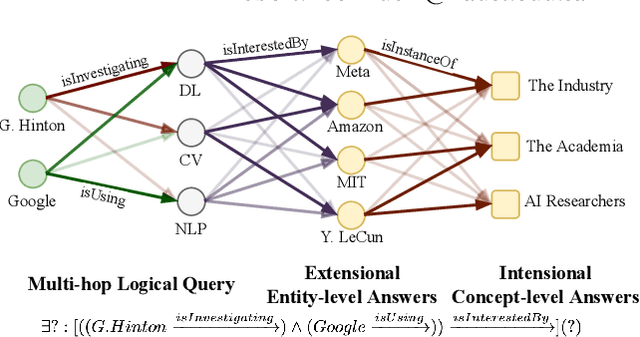Joint Abductive and Inductive Neural Logical Reasoning
Paper and Code
May 29, 2022



Neural logical reasoning (NLR) is a fundamental task in knowledge discovery and artificial intelligence. NLR aims at answering multi-hop queries with logical operations on structured knowledge bases based on distributed representations of queries and answers. While previous neural logical reasoners can give specific entity-level answers, i.e., perform inductive reasoning from the perspective of logic theory, they are not able to provide descriptive concept-level answers, i.e., perform abductive reasoning, where each concept is a summary of a set of entities. In particular, the abductive reasoning task attempts to infer the explanations of each query with descriptive concepts, which make answers comprehensible to users and is of great usefulness in the field of applied ontology. In this work, we formulate the problem of the joint abductive and inductive neural logical reasoning (AI-NLR), solving which needs to address challenges in incorporating, representing, and operating on concepts. We propose an original solution named ABIN for AI-NLR. Firstly, we incorporate description logic-based ontological axioms to provide the source of concepts. Then, we represent concepts and queries as fuzzy sets, i.e., sets whose elements have degrees of membership, to bridge concepts and queries with entities. Moreover, we design operators involving concepts on top of the fuzzy set representation of concepts and queries for optimization and inference. Extensive experimental results on two real-world datasets demonstrate the effectiveness of ABIN for AI-NLR.
 Add to Chrome
Add to Chrome Add to Firefox
Add to Firefox Add to Edge
Add to Edge